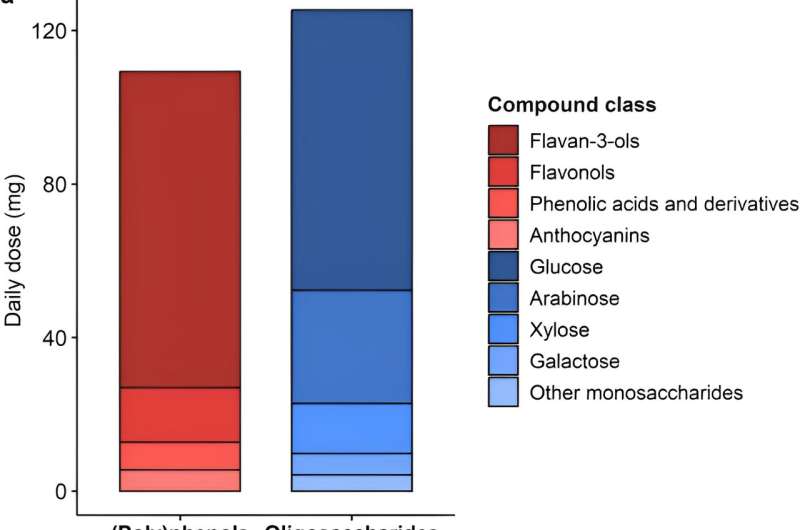
Cranberry extracts appear to improve intestinal microbiota and help prevent chronic diseases such as diabetes and cardiovascular diseases. A recent study by Université Laval and the Institute of Nutrition and Functional Foods (INAF) reported beneficial effects after only four days of use.
Cranberries and berries are associated with multiple health benefits, mainly attributed to their high content of polyphenols, in the form of tannins. They also contain high concentrations of oligosaccharides, small fibers that are thought to contribute to their bioactivity.
The research team, led by Yves Desjardins, professor at the Faculty of Agriculture and Food Sciences, showed that the polyphenols and oligosaccharides present in a cranberry extract boost the genus Bifidobacterium, associated with a reduced risk of diabetes and cardiometabolic diseases. The work is published in the journal npj Biofilms and Microbiomes.
“Normally, these bacteria are stimulated by dietary fiber consumption. We observed the same effect with cranberry extract with a dose almost 20 times lower,” says Jacob Lessard-Lord, a postdoctoral fellow at INAF.
Cranberry extracts also stimulate the Akkermansia muciniphila bacterium, which plays an important role in the intestinal mucosa, helping to reduce inflammation and strengthen the intestinal barrier.
This is of particular interest when it comes to countering the harmful effects of a Western diet. “This diet alters the microbiota, causes inflammation of the mucosa, and compromises the integrity of the intestinal barrier, which plays a crucial role in protecting the body from bacteria present in the gut.
“Alteration of the intestinal barrier allows the passage of lipopolysaccharides (LPS) derived from the intestinal microbiota, known as metabolic endotoxemia, and is a crucial factor in the onset and progression of inflammation and metabolic diseases,” explains Desjardins.
“The constant inflammation that results from the presence of LPS in the body can lead to several chronic diseases, including diabetes, and cardiovascular disease,” he explains.
When included into a balanced diet, cranberry extracts could modify the inflammatory pathway and improve the prognosis of a chronic disease. By stimulating Akkermansia muciniphila bacterium and Bifidobacterium, the microbiota regenerates and recreates an anti-inflammatory environment. This results in strengthening the connections between the cells of the intestinal barrier, thereby fortifying it.
In the study, approximately forty participants recruited at INAF were instructed to consume a cranberry supplement in capsule form twice daily, morning and evening, which is equivalent to ingesting 60 grams of fresh cranberries.
At the beginning of the experiment and after four days, samples of plasma, urine, and stool were collected from participants. The human study was initiated following promising results in the SHIME in vitro system, which reproduces regions of the intestine.
The research team is now interested in exploring the long-term effects of the extracts. “It’s promising to see a beneficial effect after just four days,” says Lessard-Lord.
Although cranberries had a beneficial effect on all participants, the results highlighted variability in their responses. Future research will identify which microbiota signatures respond best to the extracts.
The authors are Lessard-Lord, Charlène Roussel, Joseph Lupien-Meilleur, Pamela Généreux, Véronique Richard, Valérie Guay, Denis Roy and Desjardins.
More information:
Jacob Lessard-Lord et al, Short term supplementation with cranberry extract modulates gut microbiota in human and displays a bifidogenic effect, npj Biofilms and Microbiomes (2024). DOI: 10.1038/s41522-024-00493-w
Citation:
Cranberry extracts could boost microbiota and counter cardiometabolic diseases (2024, April 30)
cranberry-boost-microbiota-counter-cardiometabolic.html
.
. The content is provided for information purposes only.
